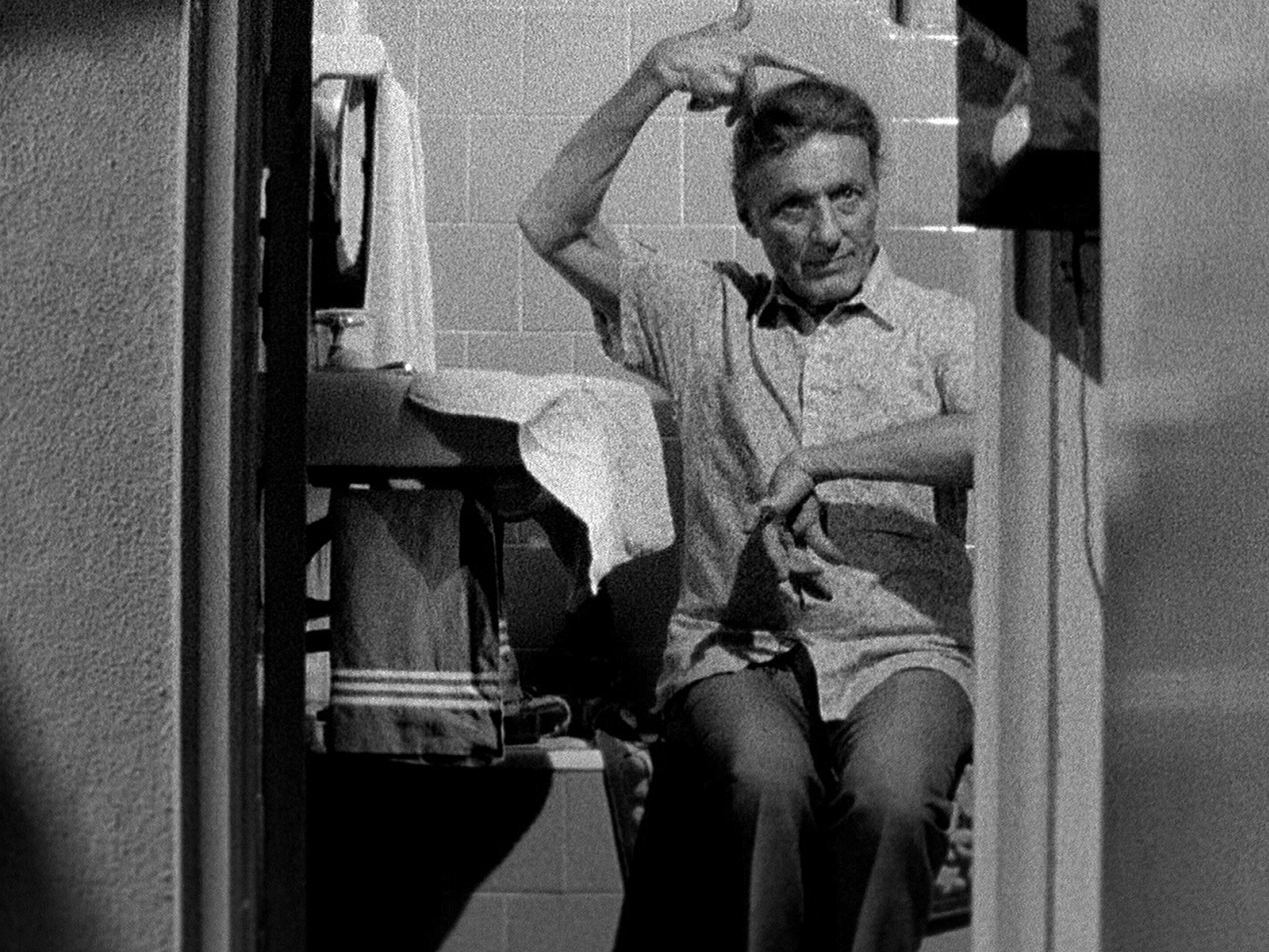CERCA
4 giugno 2018, 18.30 / Cinema De Seta
carte postale à Serge Daney
Santiago
João Moreira Salles
Brasile 2006 / 80’ / v.o. sott. it.

Santiago è stato il maggiordomo della famiglia Salles per ben quarant’anni, divenendo testimone delle vicende di una casa tra le più importanti del Brasile di quegli anni. Argentino di origini piemontesi, è uomo colto, appassionato di lirica e di arte italiana rinascimentale, ha trascritto per decenni con la sua macchina da scrivere la storia dell’umanità attraverso le vicende delle famiglie aristocratiche. È il 1992 quando João Moreira Salles decide di intervistarlo per raccontare la singolarità del personaggio, ma anche per ripercorrere la storia della sua famiglia e della casa nella quale hanno vissuto insieme per tanto tempo. Una serie di vicende porterà il regista a completare il lavoro di montaggio solo nel 2005, intrecciando le interviste di Santiago a una riflessione sull’evoluzione del documentario stesso e restituendo un lavoro affascinante e magnetico come le storie e i ricordi raccontati dal suo eccentrico protagonista.
Santiago has been Salles’ butler for the last forty years, becoming witness of the events happened in a family, at that time, among the most important in the whole Brazil. Argentinian of Piedmontese origins, he is a cultivated man, fond of opera music and of Italian renaissance art. He has been transcribing for decades with his typewriter the history of humanity through the events of aristocratic families. It is 1992 when João Moreira Salles decides to interview him to tell us about the singularity of this character, but also to retrace the story of his family and of the house where they lived together for a long time. A series of events will lead the director to complete the editing only in 2005, intertwining the interviews to Santiago with a reflection on the evolution of the documentary itself and making a work as fascinating and magnetic as the stories and tales told by its eccentric main character.
João Moreira Salles
Regista e produttore brasiliano, comincia ad approcciarsi al mondo dello spettacolo nel 1985 lavorando come sceneggiatore per la serie tv Japão, uma Viagem no Tempo. Due anni più tardi fonda la casa di produzione Videofilmes con l’obiettivo di realizzare documentari per la televisione, ma il passaggio alla produzione di lavori cinematografici avverrà quasi subito. Nello stesso anno dirige il documentario per la tv China – O Império do Centro e lavora come sceneggiatore per Krajcberg – O Poeta dos Vestígios, diretto dal fratello Walter Salles, film per il quale ha vinto diversi premi. Dopo vari lavori documentari per il cinema, nel 1998 realizza Futebol, una serie di documentari co-diretta con Arthur Fontes. Nel 2002 realizza il documentario Nelson Freire, sulla carriera del pianista brasiliano. Lo stesso anno, durante la campagna presidenziale realizza il documentario Entreatos sul candidato alla presidenza Luiz Inácio Lula da Silva. João Moreira Salles è anche il fondatore della rivista Piauí.
He is a Brazilian director and producer. He begins to approach the show business in 1985, working as a playwriter for the tv series Japão, uma Viagem no Tempo. Two years later, he founds the production company Videofilmes, which aims to produce tv documentaries. However, the transition to the production of cinematographic works occurs almost immediately. In the same year, he directs the tv documentary China – O Império do Centro and works as playwriter for Krajcberg – O Poeta dos Vestígios, by his brother Walter Salles, winning several awards for it. After various documentaries for the cinema, in 1998 he realizes Futebol, co-directed with Artur Fontes. In 2002 he realizes the documentary Nelson Freire, about the Brazilian pianist’s career. In the same year, during the Brazilian presidential campaign, he realizes the documentary Entreatos about the presidential candidate Luis Inácio Lula da Silva. João Moreira Salles is also the founder of Piauí magazine.
Santiago
João Moreira Salles
Brasile 2006 / 80’ / v.o. sott. it.
screenplay João Moreira Salles
cinematography Walter Carvalho
editing Eduardo Escorel, Lívia Serpa
sound Denilson Campos, José Luiz Sasso
producer Videofilmes Produçoes Artisticas Ltda.
contact mariacarlota@videofilmes.com.br



